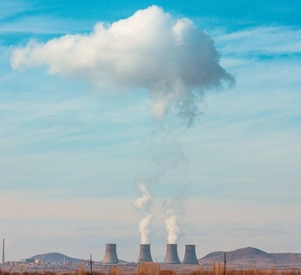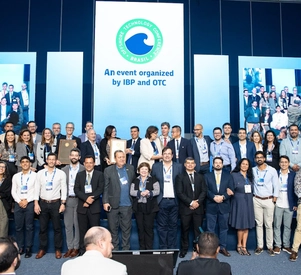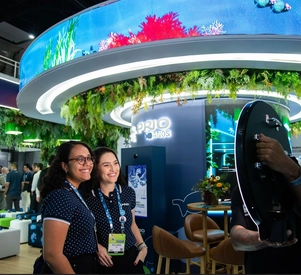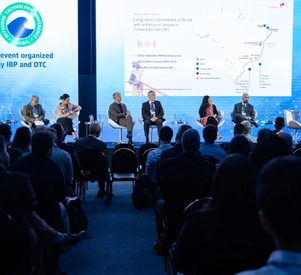Rio Pipeline & Logistics 2025 Opens Highlighting Stronger Integration Between Energy and Logistics
During the opening session, industry leaders announced up to R$29 billion in pipeline investments and emphasized energy transition.
Rio Pipeline & Logistics 2025, the leading global meeting point for the pipeline, transportation, and logistics sector, opened today in Rio de Janeiro. The opening session gathered federal and state government officials, IBP representatives, and executives from the country’s major oil and gas companies. The session began with the announcement of up to R$29 billion in investments and discussions centered on energy transition, innovation, and sustainability as pillars for the future.
Roberto Ardenghy, President of the Brazilian Petroleum and Gas Institute (IBP) – the event organizer – highlighted the inclusion of the logistics segment in this year’s edition. “Everything depends on logistics, and we must have a comprehensive view of the sector. That’s why we decided to incorporate the logistics segment into the program, with more than 50% more exhibition space compared to the previous edition and 30% more registrations,” said Ardenghy.
The importance of gas interconnection in the Southern Cone—particularly between Brazil and Argentina’s Vaca Muerta field—and the expansion of the pipeline network in Brazil’s Midwest region, driven by biofuels production, were also emphasized during the session. Carlos Eduardo Cabral Carvalho, Acting President of the Energy Research Office (EPE), announced a plan to invest up to R$29 billion in the country’s pipeline infrastructure, to be officially launched on Thursday, September 11, during the event.
Pipeline transport was highlighted as a safer mode with lower CO₂ emissions compared to road transport. Angélica Laureano, Executive Director of Energy Transition and Sustainability at Petrobras, pointed to logistics planning for the Equatorial Margin and the expansion of the gas pipeline network toward the Midwest as critical issues.
Other participants in the opening session included Marcelo Weydt, Director of the Natural Gas Department at the Ministry of Mines and Energy (MME); Otto Luiz Bulier, Director of the National Secretariat of Waterways and Navigation at the Ministry of Ports and Airports (MPOR); Artur Watt, Director General of the National Agency of Petroleum, Natural Gas and Biofuels (ANP); Sérgio Bassi, President of Transpetro; Cássio Coelho, Secretary of Energy and the Sea Economy of the State of Rio de Janeiro (SEENEMAR); Ildemar Nunes, Co-Chair of Rio Pipeline & Logistics Petrobras; Sylvie D’Apote, Executive Director of Natural Gas at IBP; Cláudia Rabello, IBP’s Executive Director of Corporate Affairs; and Ana Mandelli, Executive Director of Downstream at IBP.
Investments in Pipeline Safety
During the CEO Talks panel, Transpetro’s President, Sérgio Bacci, detailed the company’s expansion plans, which combine strong investments in technology to combat fuel theft, expansion of the shipping fleet, and social responsibility initiatives. “We have invested R$100 million per year in technology to prevent theft, and as a result, Transpetro has reduced such incidents by 90%,” he said.
According to him, Transpetro plans to double its fleet of ships. “We expect to expand the fleet by 80% in the coming years. By the end of this month, we will announce the results of the bidding process for eight ships, and we are preparing to launch a new tender for the construction of four additional ships in Brazilian shipyards,” said Bacci. “We need to create long-term demand, of at least 20 years, to ensure consistent and sustainable development, generating jobs and income in Brazil,” he concluded.
Investments in Pipeline and Logistics Infrastructure
In the panel “Overview of Investments in Pipeline and Logistics Infrastructure in Brazil’s O&G Sector”, IBP presented a study mapping the allocation of funds raised through incentivized debentures in the oil and gas sector in 2024. The study recorded R$26 billion invested in 33 assets, mostly in pipeline infrastructure and natural gas processing. The transportation and logistics sector attracted R$104 billion in 159 assets.
The analysis was conducted by Isabella Costa, IBP’s O&G Technical Analysis Manager, economist Aldren Vernersbach, and economic analyst Leonardo Lima, and will be made available on IBP’s website.
Independent Companies’ Strategies
Two of the country’s leading independent oil and gas companies presented their projects, strategies, and differentiators to advance in the market. Renato Santos, Subsea Coordinator at PRIO, stressed that “independents are not small majors” since they must remain “focused on cost reduction” and maintain lifting costs under control to achieve agility and efficiency. He cited the case of the Polvo field, which was initially scheduled for decommissioning in 2018, but is now expected to remain active until 2032.
Priscilla Borges, from Brava Energia’s asset integrity division, highlighted that the company’s asset integrity program is a key part of its strategy. In addition to focusing on mature fields, Brava seeks a diversified portfolio with onshore and offshore oil and gas production in shallow and deep waters. She cited the Atlanta field, a greenfield project with potential to increase production through the interconnection of new wells to the existing platform.
Technical Panels: Quality Control and Safety
The first morning of the event also included technical panels. Brazil’s main gas transportation companies—Transpetro, TBG, TAG, and NTS—took part in the panel “Smart Control Centers: Efficiency and Operational Safety Challenges in the Digital Transformation Era”, addressing digital transformation initiatives aimed at improving efficiency and operational safety in their control centers.
- Transpetro presented supervisory system modernization, screen standardization, and advances in leak detection with emphasis on the human factor.
- TAG showcased its gas management systems, optimization console, and machine learning applications for predictive analytics and smart alarms.
- NTS discussed implementing a new AI-powered supervisory system, real-time simulations for predictive analysis, and the use of “data fabric” for data optimization.
- TBG highlighted its SCADA system upgrade, cloud redundancy for its control center, and the use of digital twins, reinforcing the importance of cybersecurity and cross-functional collaboration.
In the session “Impact of Specific Environmental Conditions on Pipeline Corrosion”, specialists discussed how environmental factors influence internal and external corrosion of pipelines. They underscored the importance of detailed case studies to ensure pipeline integrity and safe operations under challenging conditions.
The panel “Digital Twins, Remote Monitoring, and Advanced Connectivity” explored how technology is revolutionizing asset management in the sector, showing how digital twins enable scenario simulation and real-time operations optimization. Remote monitoring and advanced connectivity technologies were presented as essential tools for enhancing efficiency, safety, and sustainability in pipeline operations.
About Rio Pipeline & Logistics
Rio Pipeline & Logistics is taking place at ExpoRio Cidade Nova from September 9–11. The event’s Master Sponsor is Petrobras; Diamond Sponsors include TAG, TBG, and Transpetro; Platinum Sponsors include NTS and Tenaris; Gold Sponsor is TechnipFMC; Silver Sponsor is Rosen; and Bronze Sponsors include SLB + Enivibes, Solar Turbines, Tory Tech, Energia Latam, Ecopetrol. The event also benefits from a Strategic Partnership with the Secretariat of Energy and the Sea Economy of the Government of the State of Rio de Janeiro. Institutional supporters include: ABCM, Abegás, AbesPetro, Abimaq, ABICAM, ABRACO, ABTL, AHK, Arpel, ATP, CTDUT, EIC, and Energeo. Media partners are: Eixos, Offshore, Oil & Gas Journal, Petro & Química, PTJ, TN Petróleo, and World Pipelines.




